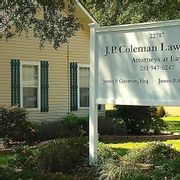A Guide to the Grounds for Eviction in Alabama

When you’re renting a house or apartment, getting evicted is the last thing you want to happen. Sometimes, though, circumstances change and your landlord asks you to vacate the property. If you receive an eviction notice from your landlord or their attorney, though, you may not have to pack up and leave immediately. Under Alabama law, landlords can only evict tenants under certain circumstances.
When Can You Be Evicted?
Alabama allows for two types of evictions: With cause, and without cause. Without cause, evictions are only allowed when the landlord doesn’t have a valid reason to ask the tenant to leave. They must wait until the lease ends before they can expect the tenant to move. In the case of a month-to-month agreement, landlords must provide a 30-day notice to vacate, effectively ending the lease.
In a fixed-term lease, the landlord can expect the tenant to move out when the lease ends, without providing written notice. If the tenant doesn’t leave, formal eviction proceedings can begin.
Evictions with cause can take place at any time during the lease agreement. However, Alabama law stipulates that only three circumstances are considered valid reasons to evict:
- The tenant has failed to pay rent and doesn't pay within the seven day Notice to Pay Rent period.
- The tenant violates terms of the lease agreement, such as having pets when none are allowed, or exceeding occupancy limits. The landlord can send a seven day Notice to Remedy on violations, allowing the tenant to correct the violation. If they don’t, then eviction proceedings can begin.
- The tenant commits certain illegal activities, including selling or manufacturing drugs, prostitution, or lying on their rental application. The landlord can immediately evict for these offenses without providing a chance to fix the problem.
In all cases, Alabama landlords must follow the legal processes for eviction, which include written notice of the intent to evict you. If they don't follow the law, you may receive damages, including the equivalent of three months of rent and the reimbursement of attorney fees.
What to Do if You Are Evicted
 If you receive an eviction notice from your landlord, the first step is to attempt to remedy the problem, if possible. Review the terms of your lease to determine what you need to do to comply.
If you receive an eviction notice from your landlord, the first step is to attempt to remedy the problem, if possible. Review the terms of your lease to determine what you need to do to comply.
Even if the landlord has a legitimate cause for evicting you, you may be able to fight the eviction with an attorney successfully. If you suspect that you are being evicted out of retaliation (for example, you have a dispute with the landlord over repairs) or discrimination, you may be able to avoid having to move.
If you think you are being evicted unfairly, JP Coleman Law, LLC, Attorneys at Law can help you. These experienced Robertsdale, AL, attorneys are well-versed in Alabama eviction laws, and will provide compassionate and personalized assistance to help you avoid eviction. To learn more about these attorneys, visit them online or call (251) 947-6247 to discuss your case.
About the Business
Have a question? Ask the experts!
Send your question

